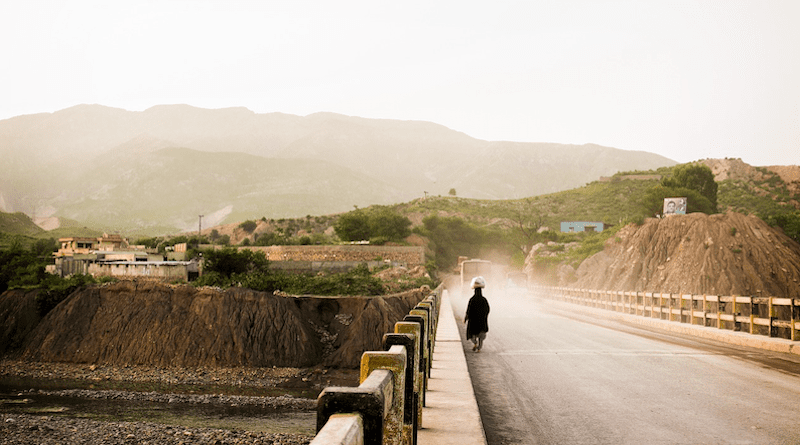Minorities In Pakistan – OpEd
Pakistan remains the center of global press due to many reasons. Unfortunately, it receives bad press due to lack of information and understanding. The issue of minorities rights and socio-economic opportunities is among such topics where global audience has very limited insight available.
Pakistan, despite being a predominately-Muslim majority country has strong constitutional, legal, social frameworks emplaced to protect the fundamental rights of minorities. According to the fifth census, the non-Muslim population was 3.72% of the total population.
In constitutional framework of 1973, the rights of minorities have been protected by Article 20, 27 and 36. The right of complete religious freedom is ensured in Article 20 where state of Pakistan is responsible to allow minorities to profess, practice and propagate his religion. Clause b of the same Article protect the right of minorities or every sect of thereof to establish, maintain and manage its religious institutions.
Any discrimination in Service of Pakistan against any minority member of society based on religious belief has been prevented through Article 27 of the constitution of Islamic Republic of Pakistan. The state is responsible for safeguarding the legitimate rights and interests of minorities, including their due representation in the federal and provincial services according to Article 36 of the constitution. Apart from these provisions, a special minority quota of 5% is reserved for non-Muslim Pakistanis in the civil services.
Constitutional rights of minorities in Pakistan are not limited to fundamental rights like practicing religious obligations or job security, they can also participate in national policy making through exercising their democratic right of participating in national politics. In this regard, Article 51 Clause 4 reserves 10 National Assembly (Lower house of Pakistani parliament) seats while at provincial level same rights have been given for minorities through Article 106 of the constitution. At present, the total number of reserved seats on which members of Provincial Assemblies elected in the 2018 General Election was 23.
Apart from national and provincial assemblies, the upper house of Pakistani parliament (Senate) has 4 reserved seats for minorities. Reserve seats is a mean to ensure that minorities will be represented different houses of legislature in Pakistan. Political parties can filed as many minorities’ members as they like on open seats as well.
In 2017, Pakistani Parliament promulgated Elections Act 2017 making it compulsory for all political parties to submit a priority list of non-Muslim candidates with their nomination papers along with making them to submit detailed procedures for filling-up reserved seats. This act has enhance the participation of minority’s members of the society in national politics and through that in nation building. Today, elected/ appointed members of provincial and national assemblies are playing active role in policy making. These seats are filled through the method of proportional representation. Minority seats are allocated to parties according to the proportion of general seats they have bagged in the elections.
Pakistan is a developing democracy where there are few problematic areas for minorities like complete implementation of their constitutional rights in far flung or remote areas. The state is in a constant process of enhancing the situation with the help of national and provincial governments. Despite these minor challenges, it remains an encouraging fact that the constitution of Pakistan protects and promotes the rights of its minorities helping them to integrate in national fabric. Now, many non-Muslims philosophers, politicians, doctors, engineers, lawyers, judges, army persons, bureaucrats and teachers are serving in Pakistan because they enjoy the freedom of religion, freedom of thoughts, freedom of speech, freedom of association and freedom of profession. Minority members of society are playing a critical role in Pakistan’s armed forces as well. All three branches have officers and Jawan belonging to minority factions. Another historical fact about religious harmony and rights of minorities is that there have been no communal unrest in 75 years of Pakistani history. Pakistan is a safe place for everyone as long as his/her loyalty with the state of Pakistan, as a citizen, is intact.
*Author is PhD Scholar (SPIR-QAU) and has worked on various public policy issues as Policy Consultant in National Security Division (NSD), Prime Minister Office (PMO). Currently she is working in Islamabad Policy Research Institution (IPRI) as Policy Researcher/Consultant. Her work has been published in local and International publications. She can be reached at [email protected]. Twitter: @NoureenAkhtar16


Wow, what a nice piece of article. Pakistan takes care of its minorities and it is a safe place for them.
Hmmmmm! How many kidnappings, rapes, murders, blasphemy accusations happen every year?
You color a lovely pic of Pakistan’s achievements for keeping minorities safe, sorry, be truthful.